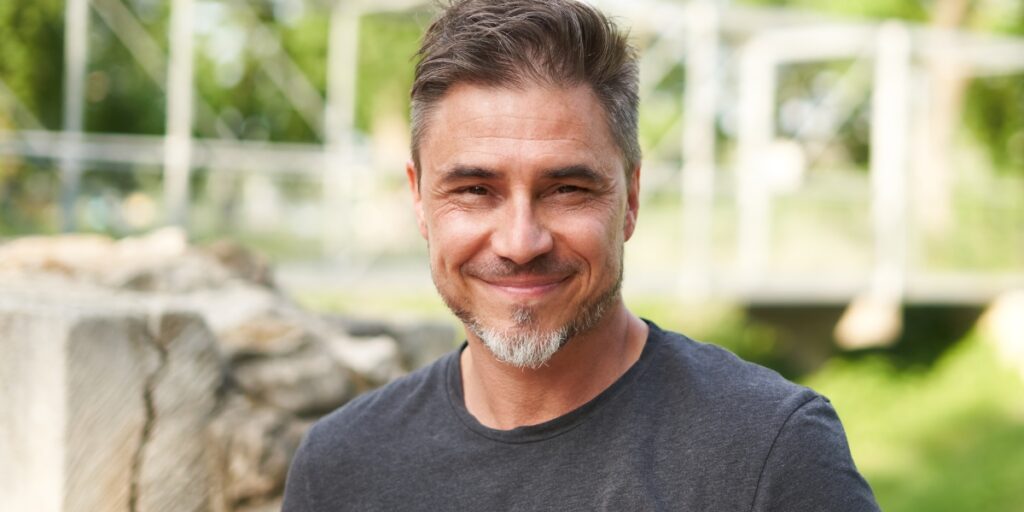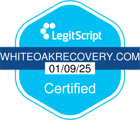Creating Your Addiction Recovery Plan


One of the most important parts of addiction treatment is creating your recovery plan for what comes next. People with a plan for recovery and realistic ways to achieve it are more likely to see long-term success and avoid relapse.
The meaning of recovery is more than not doing drugs or alcohol; it is about continued growth and improvement and learning to live the life you want on your terms. Creating a personalized recovery plan helps build the blueprint for achieving everything you want in recovery.
What Is an Addiction Recovery Plan?
An addiction recovery plan, sometimes called a recovery agenda, is a simplified and concrete course of action someone can refer to for guidance and a plan of action when they struggle to maintain sobriety.
Recovery is an ongoing process with many moving parts, which can be challenging for a person newly out of treatment and readjusting to daily life. Recovery plans provide concrete and realistic action plans to keep people on track.
The goals of a well-thought-out recovery plan include the following:
- Acknowledging how addiction affects our perceptions and reactions
- Setting goals
- An action plan to achieve professional and personal goals
- Strategies to address legal or financial issues caused by addiction
- Relationships you want to repair after treatment
- Detailed support systems to lean on
- Addiction support groups to attend
Why Create a Personal Recovery Plan?
You should create a personal recovery plan to help hold yourself accountable while navigating sober life that provides clear, structured support to help you achieve your goals. Think of your recovery plan as a progress checklist and a personal cheerleader holding you accountable and rooting for your long-term recovery.
Like every person, their life circumstances are unique, and their recovery process will be too. The key to a helpful recovery plan is to tailor it to your needs and what you’ll face during your journey. Your recovery and relapse prevention plans can change and grow alongside you.
Creating Your Addiction Recovery Plan
Creating an addiction recovery plan should be done as you prepare to move on from your treatment program with the help of your addiction treatment team. It is essential to have outside help from people who know you well and have experience with the addiction recovery process. They can give you insights about yourself and offer solutions to problems you may overlook.
The most important part of creating a personal recovery plan is being completely honest about your hopes, expectations, and capabilities. Considering the big picture, a detailed and expansive plan is crucial to long-term recovery.
Below are some common elements explored and addressed with successful addiction recovery plans.
Coping Skills (Anger Management)
Recovery involves a lot of emotions and challenges, and without resorting to drugs to numb those feelings, you will need to develop and practice your coping skills and behavioral health practices.
Some practical coping skills may include:
- Breathing exercises
- Stress management techniques
- Anger management practices
- Removing yourself from triggering situations
- Journaling
- Physical exercise
- Meditation
- Art or music therapy
- Venting to a trusted friend or sponsor
The idea is that coping skills give you healthy outlets for negative or stressful feelings instead of bottling them up. If you feel you could have handled a situation better, you can always sit down and review this part of your recovery plan and adjust it.

Addressing Triggers
Triggers are anything that causes a sudden urge to use substances or memories about past substance abuse that can threaten recovery. Addressing each trigger and having plans to deal with them healthily can prevent a lot of heartache and relapse.
Triggers can be people, places, events, dates, or even smells or songs; some you can plan for, and others will take you by surprise.
Some common ways of addressing triggers include:
- Avoiding places you associate with past substance use
- Ending relationships with people you formerly used with
- Making new memories and traditions to make special occasions
- Bringing non-alcoholic drinks to events for yourself
- Planning excuses to leave situations
- Practicing self-soothing and coping skills
- Reaching out to your support system
Support Systems
Identify the people and support systems you can reach out to.
Support systems may include:
- Your therapist
- Members of 12-step facilitation groups
- Sober friends
- Relatives
- Your sponsor
Over time your support systems will grow and change; update your recovery plan accordingly.
Self-Care
Self-care is one of the most vital but overlooked steps in a recovery plan.
Self-care techniques may include:
- Ensuring you get enough sleep each night
- Eating healthy and regularly
- Taking time for a creative or physical outlet
- Maintaining a fitness and hygiene routine
- Staying current on your medical and therapy appointments
As the saying goes, you cannot pour from an empty cup. You have to take care of yourself before you can be helpful to anyone else.
Relapse Prevention Strategies (Support Groups)
Sometimes friends and family have the best intentions but can’t fully understand the challenges of recovery. Finding support groups that can give insight and help remind you of the relapse prevention plans and strategies is helpful.
Relapse prevention strategies include:
- Attending support groups like Alcoholics Anonymous or Celebrate Recovery
- Listing the reasons you stopped your substance abuse
- What you will lose if you relapse
- Consider who else a relapse would impact
- Revisit your coping skills and self-care
Personal Goals
Personal goals can include long-term plans or small, necessary achievements.
Personal goals may include:
- Establishing a fitness routine
- Getting a promotion at work
- Finishing school
- Repairing a friendship damaged by addiction
Regardless of the magnitude of your successes, you should always celebrate progress and growth.
Learn to Live a Sober Life
Learning to live a sober life can feel like starting from scratch; however, using all the above techniques and referring to your recovery plan will make the transition from treatment facilities to daily life smoother.
There is no wrong way to recover, just learning opportunities and experiences. The important thing is to continue trying and keeping faith in yourself; the rest will fall into place.

Achieve Long-Term Sobriety with White Oak Recovery Center
At White Oak Recovery Center, we take a whole-person evidence-based approach to treating substance use and co-occurring disorders. We aim to address your immediate needs and provide a unique treatment plan focused on your current circumstances, obstacles, and goals.
We offer a supportive, family-like atmosphere at WORC that serves healthy, chef-catered meals and provides several amenities for residents to experience the full benefits of residential treatment during their stay with us. Our compassionate, experienced, and fully licensed team works closely with you during every step of your treatment, ensuring you gain the coping skills and tools to face a new life in sobriety and successfully overcome triggers.
Our treatment specialists look forward to speaking with you about your treatment options. Contact us to begin your journey to healing and meaningful recovery.

Am I covered for addiction treatment?
Your insurance may cover treatment. Call now for an entirely free and confidential assessment. Recovery starts with a phone call.

- Duffy, Paul, and Baldwin, Helen. “Recovery Post Treatment: Plans, Barriers and Motivators.” Substance Abuse Treatment, Prevention, and Policy, vol. 8, Jan. 2013.
- “Recovery Planning Worksheet and Template.” Spokane Department of Health, Dec. 2013.
- Inanlou, Mehrnoosh, et al. “Addiction Recovery: A Systematized Review.” Iranian Journal of Psychiatry, vol. 15, Apr. 2020.
- McKay, James. “Continuing Care Research: What We’ve Learned and Where We’re Going.” Journal of Substance Abuse Treatment, vol. 36, Mar. 2010.
- Guenzel, Nicholas, and McChargue, Dennis. “Addiction Relapse Prevention.” National Institutes of Health, May 2022.
- “Strategic Planning Workgroup on the Complexity of Substance Use Disorders and the Continuum of Substance Use Problems.” National Institute of Drug Abuse, Aug. 2015.
- Laudet, Alexandre. “The Case for Considering Quality of Life in Addiction Research and Clinical Practice.” Addiction Science & Clinical Practice, vol. 6, Jul. 2021.
- Hilton, Thomas, and Pilkonis, Paul. “The Key to Individualized Addiction Treatment Is Comprehensive Assessment and Monitoring of Symptoms and Behavioral Change.” Behavioral Sciences, vol. 5, Dec. 2015.
- “Living in Recovery: What Works?” National Institutes of Health, Nov. 2022.
Medical Disclaimer:








